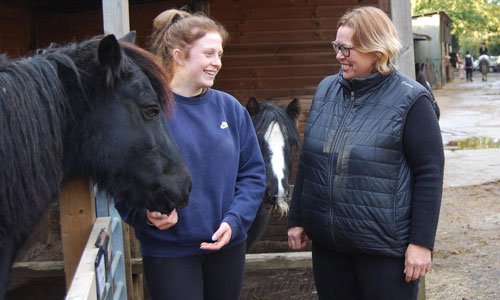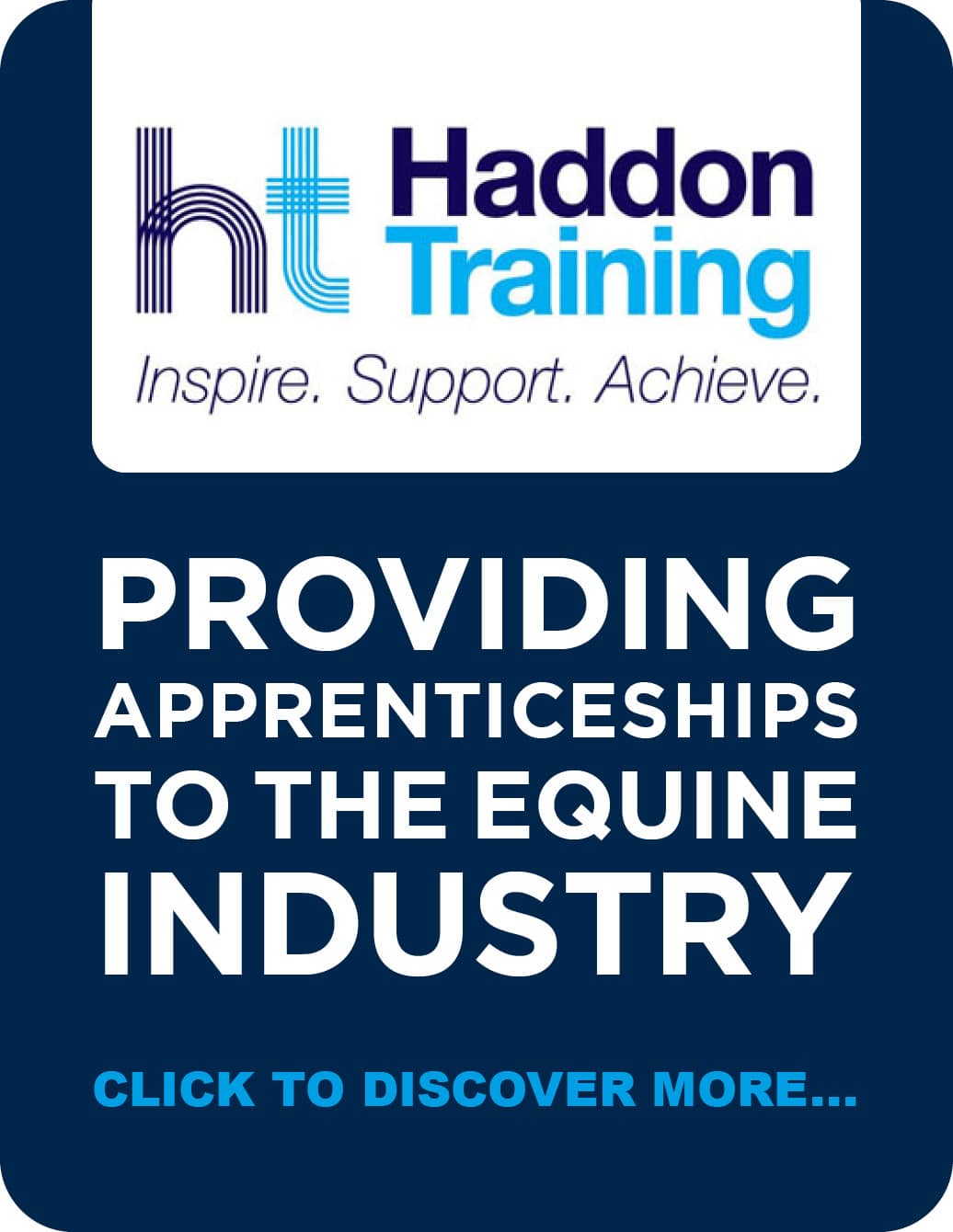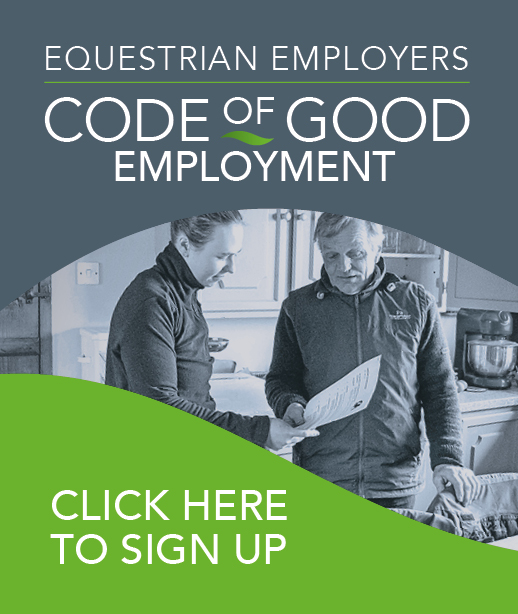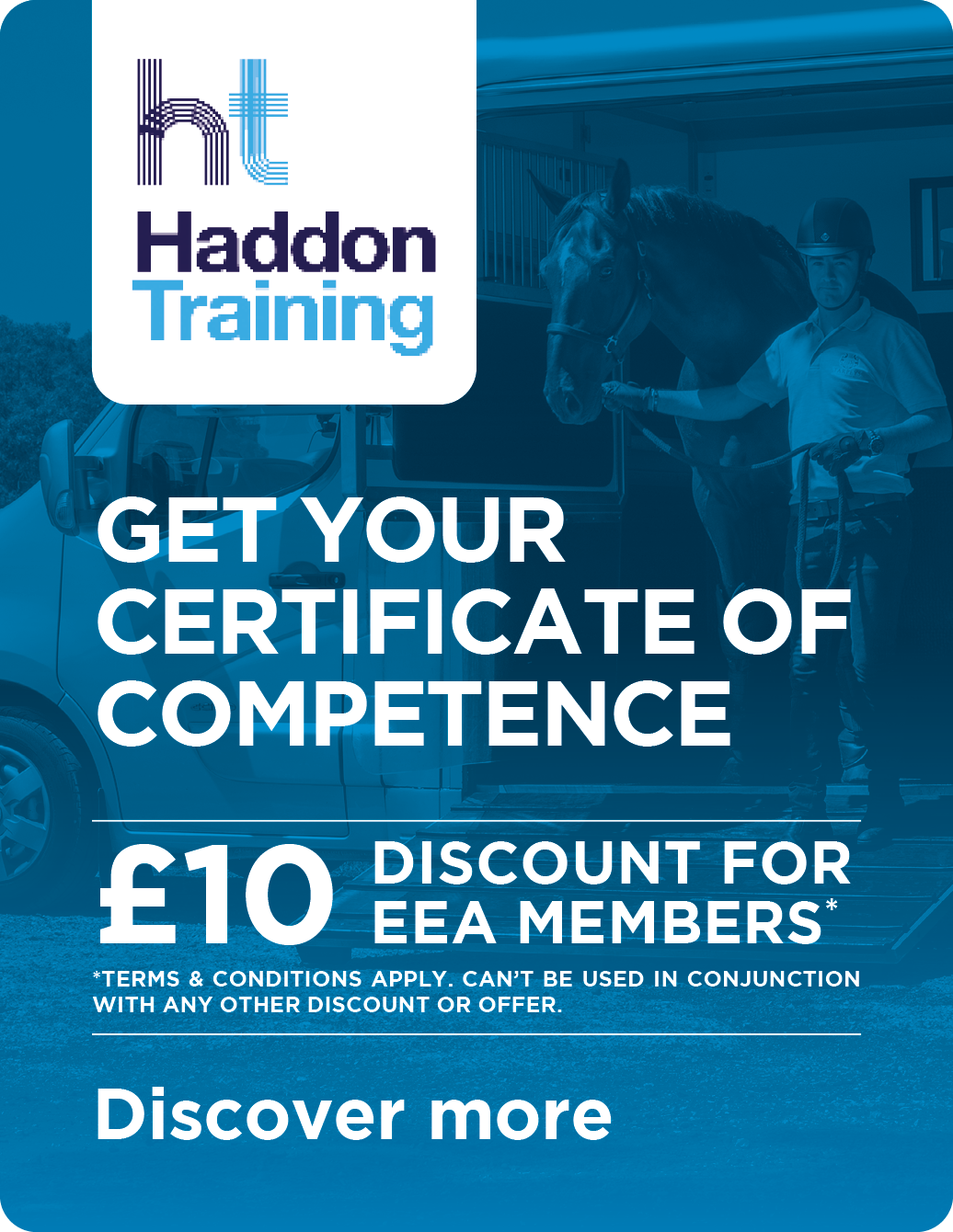- Join Us
- Login
- EEA ToolKit
- Employment Essentials
- Frequently asked
- Contracts and wages
- Time off work & absence
- Staff management & training
- Workplace disputes
- Dismissals and resignations
- Pregnancy and children
- Avoiding discrimination
- Redundancy and Retirement
- Other responsibilities
- Legal Helpline
- Recruitment
- Good Recruitment
- New starters
- Find a groom
- Good Employment
- Resources
- Downloads Library
- EEA Pension & Payroll
- Safe workplace
- Employers Minds
- Transporting horses
- Riding Establishment Licences
- Member discounts
- Business Hub
- Equestrian businesses
- The business plan
- Business compliance
- My clients
- Livery Contract Creator
- Financial matters
- Business challenges
- Marketing
- The EEA
- Employers Life
- Contact

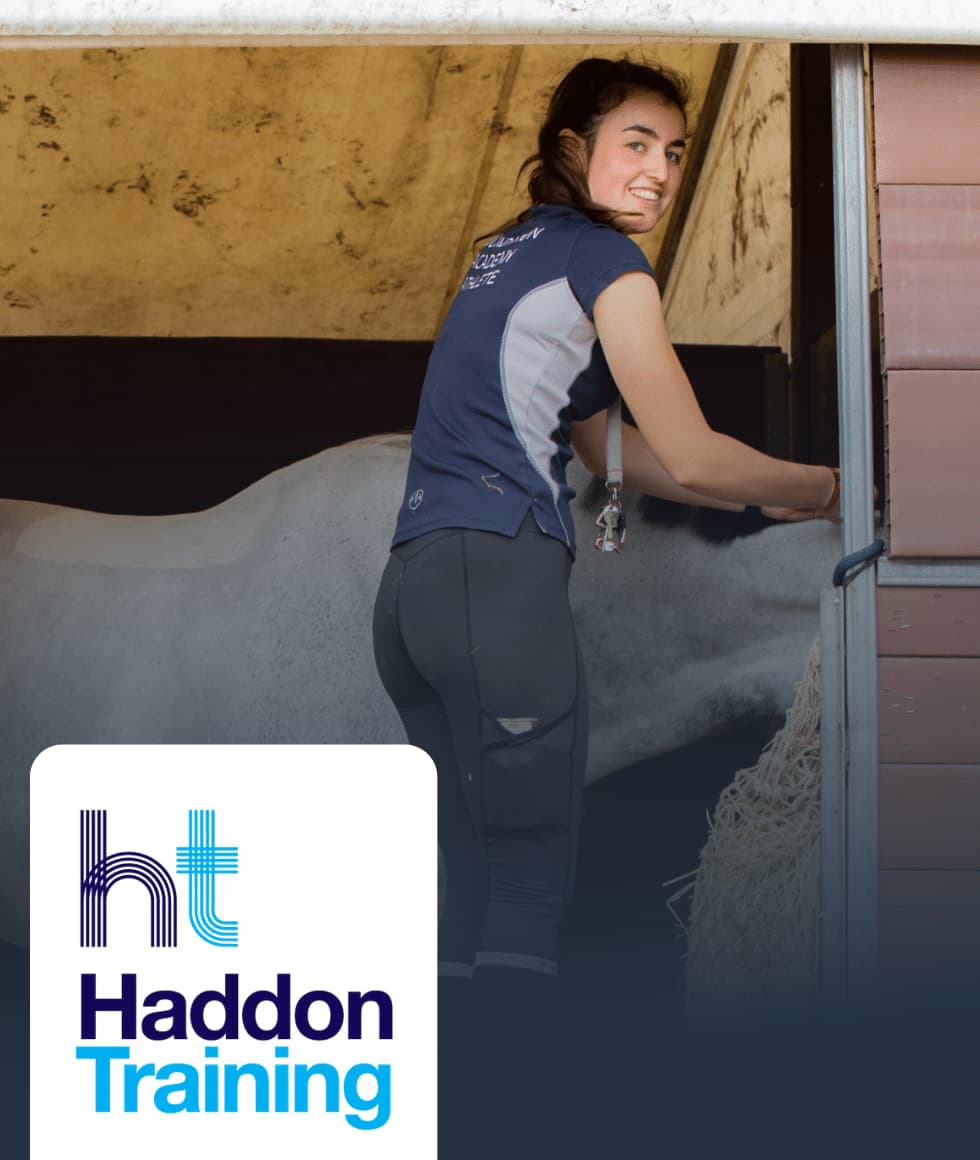
Apprentices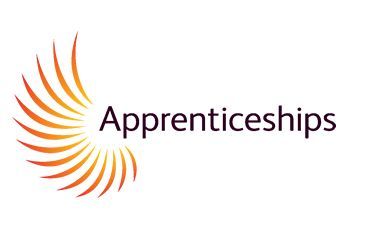
Apprenticeships are an excellent way for individuals to gain nationally recognised qualifications and workplace experience, and 'earn whilst they learn'.
Apprentices are employed, but with the support of the Equestrian Employers Association and the EEA Contract Creator it is easier than you think and there's financial help and support available from the government.
For employers they are an excellent way to develop staff skills and add value to your business.
What is an apprenticeship
Apprenticeships are Government run schemes and can be accessed through recognised and accredited training providers, for example Haddon Training
They're suitable for people at any level so you can hire someone new or upskill an existing employee.
An Apprentice must:
- be 16 or over
- not already be in full-time education
- live in England
 |
ImportantIt is an fineable offense for an employer to wrongly advertise work as an 'apprenticeship'. Employers must not use the word “apprenticeship” or describe a person undertaking a course as an “apprentice” unless it is an apprenticeship registered with a training provider. |
incentive payments and funding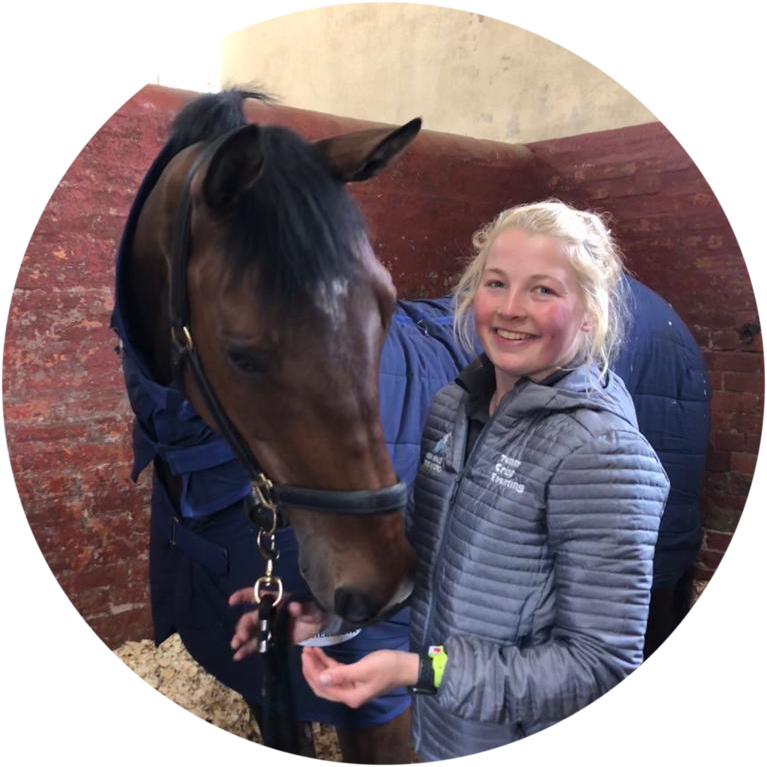
The government will pay 100% of the costs of the Apprenticeship training in most cases.
There are often incentive payments available to help businesses offer new apprenticeships.
Employers can currently receive a grant of £1,000 if the apprentice is aged:
- 16 to 18
- 19 to 24 years old and has an Education, Health and Care (EHC) plan provided by their local authority or has been in the care of their local authority.
England Small Employers Funding
Haddon Training have pulled together a useful fact sheet on the funding available for 'small employer' - those with an annual paybill of less that 3 million pounds.
Are apprentices paid?
Apprentices must still receive a wage and they must be paid at least the National Minimum Wage for every hour that they work.
The Apprentice rate can be applied if the Apprentice is either:
- aged under 19
- aged 19 or over and in the first year of their apprenticeship
Otherwise they will have to be paid at least the NMW rate for their age.
As an employer you can still deduct money from an apprentice’s wages for accommodation and other benefits such as a horse in livery, but excluding training, provided that it is done in line with HMRC guidelines.
Training your apprentice
During the apprenticeship, your Apprentice will receive two different types of training: off-the-job training and vocational training whilst working.
Off-the-job training will be delivered by a training provider during your Apprentice's normal working hours. This training will teach your Apprentice the knowledge, skills and behaviours set out in the apprenticeship standard so they can achieve occupational competence.
Your Training commitment

If you employ an apprentice it will be your responsibility to provide the vocational training and support on a day-to day basis in line with a training plan which is mutually agreed between you and your training provider.
The qualification is based upon learning and maintaining practical skills, which are assessed through regular observations and a robust end point assessment (EPA). Both you and your employee will receive support from your training provider in the form of course materials, lesson planning, registration, certification, and assessments.
The end point assessment will be performed by an approved, independent assessment centre to ensure that the learner has achieved working at the specified standard and level.
Our training partners, Haddon Training, have a 100% pass first time rate for their Equine Groom and Senior Equine Groom apprenticeships.
Your training provider will also be the conduit to access any government funding that is available and will also provide the necessary information, advice and guidance (IAG) to all parties, the quality of which is inspected by Ofsted.
What are the types of apprenticeships?
Maybe an individual wants a change in career direction, or are returning to work after a break. No matter what the reason our EEA Partners, Haddon Training, offer a variety of equine apprenticeships:
- Equine Groom (Level 2)
- Senior Equine Groom (Level 3)
- Racehorse Groom (Levels 2 and 3)
- Apprenticeship in Sporting Excellence AESE (Level 3)
- Racing Business Administration (Level 3)
- Learning and Skills Mentor (Level 4)
Each training provider or college will have their own selection on offer. You can find a range of training providers and colleges on the BGA's Where to Train page.
What is the apprentice in sporting excellence (AESE)?
Haddon Training are proud to be the home of the apprenticeship in equestrian sporting excellence (AESE) which allows talented riders to get the support they need to be the very best, and has been hugely successful in developing and preparing talented equestrian athletes. With coaching from world-class trainers including Andrew Saywell, Heike Holstein and Corinne Bracken, this advanced apprenticeship is for those based in England and is equivalent to A-Level standard.
Course subjects include tactical skills, communications, safe practice and career development, to name a few. 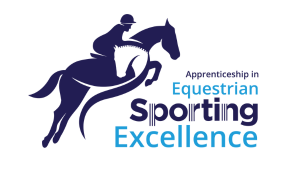
As part of AESE, there are six specialist camps, with each one lasting two days, giving riders access to industry experts including Lizzie Greenwood Hughes, Julia Scott Douglas, Chimp Management and the BEF.
Find out more and apply here.
How long does an apprenticeship take
An equine apprenticeship will take a minimum of 12 months. It typically lasts 12 to 15 months, but can last up to 24 months.
The length of time taken will depend on experience and which apprenticeship it is.
Is an apprentice an employee
Yes, they are an employee and will have all of the entitlements of any other employees.
Can i deduct money from wages for training
No.
Is a contract of employment required
Yes.
It is a legal requirement that the employer and apprentice hold a contract of employment (written statement of terms of employment) on the day they start work, as well as an apprenticeship agreement at the start of the apprenticeship.
Use the EEA Contract Creator and select Apprentice version.
More advice
Haddon Training are market leaders in equine and animal care traineeships and apprenticeships, with more than twenty years’ experience.
They work with employers throughout England and Wales to recruit and train new and existing staff to the high standard that is needed to succeed in the industry.
Haddon Training are also proud to hold an Ofsted 'Good' grade, recognising their teaching, learning and assessment.

